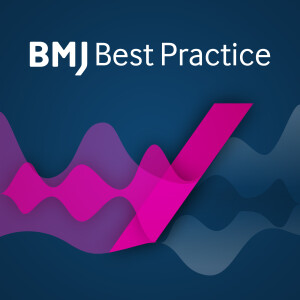
Wednesday Jul 26, 2017
Hepatitis B: How to approach diagnosis and management of chronic infection
Most people with chronic hepatitis B infection are asymptomatic, but long-term complications may include cirrhosis, hepatocellular carcinoma, or liver failure. Jawad Ahmad, Professor of Medicine in the Division of Liver Diseases at The Mount Sinai Hospital in New York, discusses hepatitis B virus infection with BMJ Knowledge Centre's U.S. Clinical Lead Sheila Feit, including how to approach diagnostic serologies and treatment to help reduce the risk of advanced liver disease. More information available at the BMJ Best Practice website: http://bestpractice.bmj.com. About BMJ Best Practice BMJ Best Practice takes you quickly and accurately to the latest evidence based information, whenever and wherever you need it. Our step by step guidance on diagnosis, prognosis, treatment and prevention is updated daily using robust evidence based methodology and expert opinion. We support you in implementing good practice. Sign up to a free 7 day trial here*: bestpractice.bmj.com/info/subscribe/free-trial/ The below topics will be made freely available for 2 weeks from World Hepatitis Day (28th July 2017): Hepatitis B Diagnostic investigations: http://bestpractice.bmj.com/best-practice/monograph/127/diagnosis/tests.html Hepatitis B Step-by-step management: http://bestpractice.bmj.com/best-practice/monograph/127/treatment/details.html Treatment guidelines including American Association for the Study of Liver Diseases (AASLD) and European Association for Study of the Liver (EASL) http://bestpractice.bmj.com/best-practice/monograph/127/treatment/guidelines.html *Please note that free personal trials and personal subscriptions are not available in North America. _
The purpose of this podcast is to educate and to inform. The content of this podcast does not constitute medical advice and it is not intended to function as a substitute for a healthcare practitioner’s judgement, patient care or treatment. The views expressed by contributors are those of the speakers. BMJ does not endorse any views or recommendations discussed or expressed on this podcast. Listeners should also be aware that professionals in the field may have different opinions. By listening to this podcast, listeners agree not to use its content as the basis for their own medical treatment or for the medical treatment of others.
No comments yet. Be the first to say something!